Description
ABSTRACT
A Review of the Key Amendments to the Companies Income Tax Act by The Finance Act 2019
Cyril Ikechukwu Obika*
It is incontestable that every nation or country in the world needs revenue to run its economy. As a way of not only raising revenue but also curtailing and possibly removing incidences of tax avoidance by aggressive tax planning, the Finance Act was enacted, to amend inter alia, the Companies Income Tax Act (CITA). The intendment of the Act is also to encourage small and medium scale businesses and engender equity in tax administration and management. The Act has brought into the Nigerian tax space the taxation of the digital economy and online business platforms. This paper reviews the major amendments to the CITA with a view to their appropriateness at this stage of Nigeria’s social and economic development and proffers solutions and recommendations to some of the pitfalls noticed in the Act.
Keywords: Companies Income Tax Act, Finance Act, Tax Avoidance, Tax Planning, Digital Economy, Online Business and Small and Medium Business.
INTRODUCTION
The President of Nigeria, Muhammadu Buhari, assented to the Finance Act1 on 13 January 2020, which is the commencement date. The Act is however to be cited as the Finance Act 2019.2 The Act altered and impacted some provisions of the Companies Income Tax Act (CITA)3 amongst others. The Finance Act amended inter alia, the provisions of the CITA with a view to curbing the hydraheaded monster of Base Erosion and Profit Shifting (BEPS) as proposed by the Organisation for Economic Cooperation and Development (OECD) and thereby broaden the triggers for domestic taxation of income earned by non-resident companies in Nigeria through dependent agents and via online market platforms. The Act also seeks to address the taxation of industries, such as insurance, start-ups and the capital markets, which are evaluated as critical to the growth and development of the Nigerian economy with a view to stimulating activities in those sectors and fostering overall economic growth. A review of the various amendments and the impact on the economy will be undertaken seriatim here.
A REVIEW OF THE CITA AMENDMENTS
The major amendments which include deletions and additions to the Companies Income Tax Act will be x-rayed below:
* PhD, LL.M, ACTI, ACIArb (UK). Partner, J-K Gadzama LLP, Chartered Tax Professional, HOD, International Law & Jurisprudence, and Lecturer, Faculty of Law, Enugu State University of Science & Technology (ESUT), Enugu Nigeria. Email: cy*********@******du.ng.; +234 803 500 1837.
- Finance Act No 1 2019.
- See Finance Act 2019, s 57.
- Cap C21 LFN 2004 (as amended in 2011).

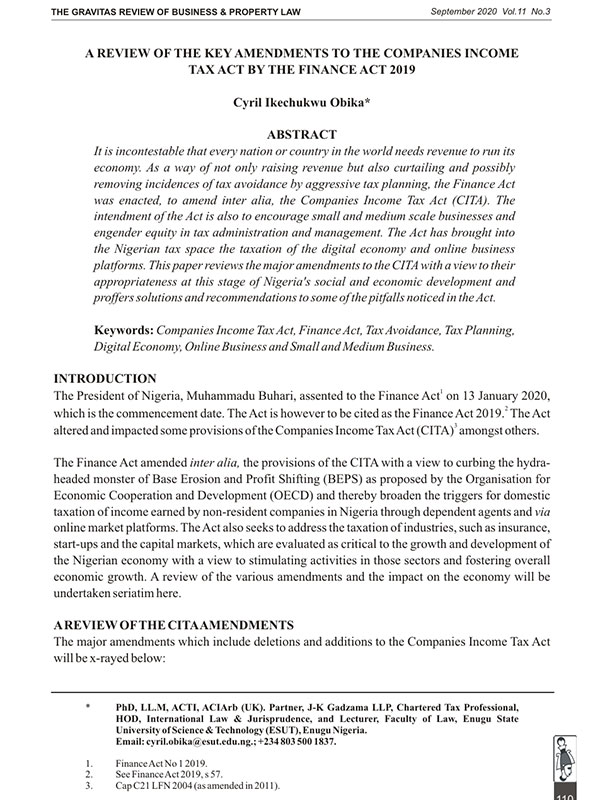
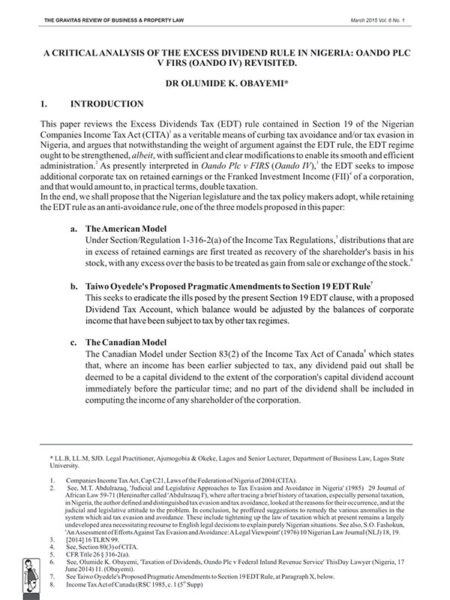
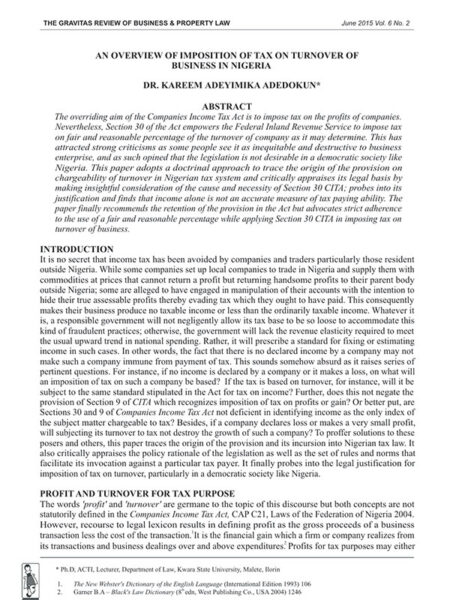
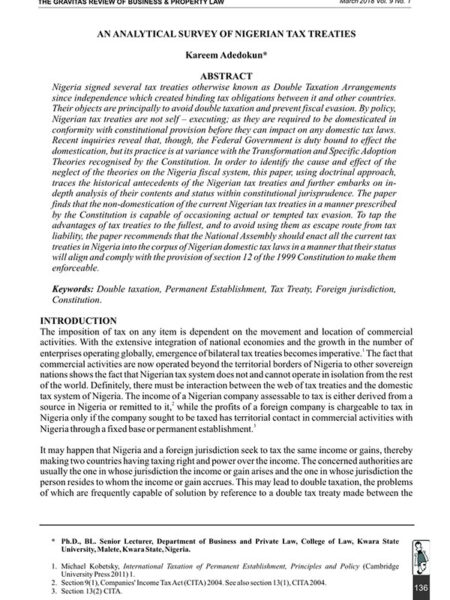
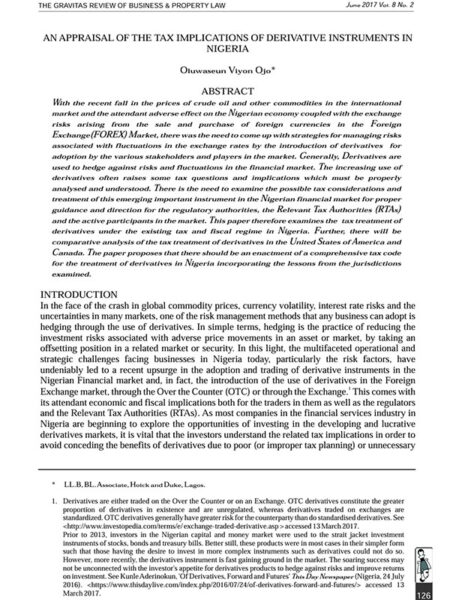


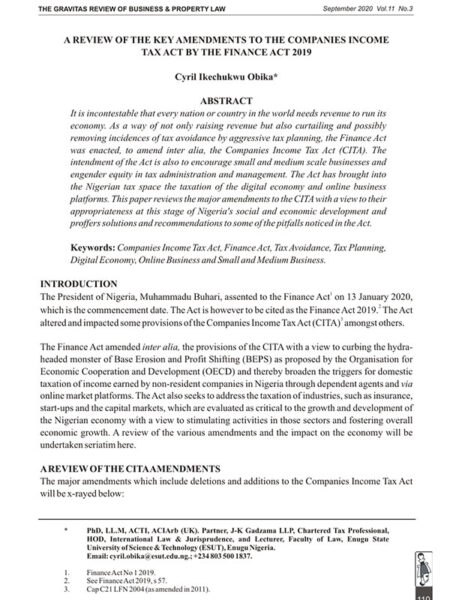
Reviews
There are no reviews yet.